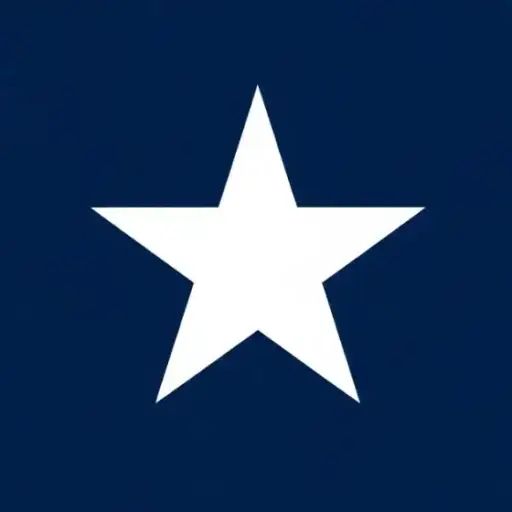Last updated 3 months ago. Our resources are updated regularly but please keep in mind that links, programs, policies, and contact information do change.
America’s military archives hold the keys to our nation’s past. Whether you’re a veteran seeking your service records, a family historian tracing military ancestors, or a researcher studying conflicts, the National Archives and Records Administration (NARA) offers a treasure trove of information.
This guide walks you through NARA’s military records collection, explaining how to find and access these valuable resources.
Finding Your Way Through Military Records
NARA organizes its military collections in several ways to make research easier:
By Military Branch
Each branch has its own dedicated records section:
This organization helps if you’re interested in a particular military branch’s history, personnel, or technological developments.
By War or Conflict
NARA holds records from every American conflict, including:
- Revolutionary War (1775-1783)
- War of 1812 (1812-1815)
- Mexican War (1846-1848)
- Civil War (1861-1865)
- Spanish American War (1898)
- Philippine Insurrection (1899-1902)
- World War I
- World War II
- Korean War (1950-1953)
- Vietnam War (1961-1975)
This structure is perfect for researchers studying specific historical events.
By Subject Area
Military records are also organized by topics like:
- Military Personnel Records (individual service files)
- Historical Military Records (unit reports, rosters)
- Cold War and Interwar Period
- OSS and Intelligence Records
This thematic approach lets you explore specific aspects of military history.
Types of Military Records
Understanding different military record types helps focus your research:
Service Records: Also called Official Military Personnel Files (OMPFs), these contain documents about a veteran’s enlistment, training, assignments, performance, awards, and discharge.
DD Form 214: This Report of Separation is a key document within the OMPF and is often required for veterans’ benefits.
Unit Records: These show the activities of specific military units, including after-action reports, combat reports, ship logs, and unit rosters.
Historical Documents: This broader category includes correspondence, policy documents, and materials providing context to military operations.
Military Photographs: NARA holds a vast collection of visual documentation showing military activities, personnel, and equipment across different eras.
Where to Find Military Records
The physical location of records within NARA facilities depends on their time period:
Pre-World War I records are mainly held at the National Archives in Washington, D.C.
World War I to present service records are kept at the National Military Personnel Records Center (NPRC) in St. Louis, Missouri.
Post-World War I unit records are generally at the National Archives in College Park, Maryland.
To find specific records, use the National Archives Catalog, which lets you search across NARA’s holdings by keywords, dates, record groups, and series.
This table summarizes where to find different military records:
| Time Period | Record Type | Primary NARA Location |
|---|---|---|
| Pre-World War I | Service Records | National Archives in Washington, D.C. |
| World War I to Present | Service Records | National Military Personnel Records Center (NPRC) in St. Louis |
| Post-World War I | Unit Records | National Archives in College Park, Maryland |
Getting Individual Service Records
NARA follows a “62-year rule” for public access to military records. Records of veterans who left service 62 or more years ago are considered archival and open to the public. For more recent records, access is restricted to the veteran or next of kin.
There are several ways to request military service records:
Online Request System
Veterans and next of kin can use the eVetRecs system, which allows you to:
- Create an account
- Fill out an electronic request form
- Verify your identity through ID.me
- Submit your request online
Note that you may need to print and mail a signature page to complete the process.
Standard Form 180
The Standard Form 180 (SF-180) is a traditional way to request records. You can:
- Download the form from NARA’s website
- Fill it out with the veteran’s information and service details
- Mail or fax it to the appropriate address listed on the form
Written Request
If you can’t use eVetRecs or get an SF-180, submit a written request including:
- Veteran’s complete name used during service
- Service number or social security number
- Branch of service
- Dates of service
- Date and place of birth
- Place of discharge and last unit (helpful for records affected by the 1973 fire)
- Your signature and date
- Proof of death if you’re the next of kin of a deceased veteran
Fees for Records
Fees may apply for archival records (veterans discharged more than 62 years ago):
- Routine OMPFs: $25 for files of 5 pages or less; $70 for files of 6+ pages
- Records of Persons of Exceptional Prominence: $0.80 per page ($20 minimum)
Basic information is generally free for veterans, next of kin, and authorized representatives requesting non-archival records.
This table summarizes the request methods:
| Method | Who Can Use | Key Requirements | Link |
|---|---|---|---|
| Online via eVetRecs | Veteran, Next of Kin | Account creation, ID.me verification | eVetRecs |
| Mail using SF-180 | Veteran, Next of Kin, Public (for archival records) | Complete SF-180, mail to appropriate address | SF-180 Form |
| Fax using SF-180 | Veteran, Next of Kin, Public (for archival records) | Complete SF-180, fax to NPRC | SF-180 Form |
| Written Letter | Veteran, Next of Kin, Public (for archival records) | Include required details and signature | NPRC Contact Info |
Researching Military Units and Historical Documents
Beyond individual service records, NARA houses rich information about military units, including:
- After-action reports: Detailed accounts of military operations
- Combat reports: Documents filed by pilots or air gunners about enemy engagements
- Ship deck logs: Daily activities and movements of naval vessels
- Unit rosters: Lists of personnel assigned to specific units
To find information about specific units, use:
- NARA’s History Hub – an online forum where researchers connect and share information
- National Archives Catalog – search by keywords related to the unit, conflict, or time period
Remember that while service records come from NPRC in St. Louis, unit records often require contacting the National Archives in College Park.
Military Photographs Collection
NARA maintains an extensive collection of military photographs that document personnel, equipment, operations, and facilities across different eras.
The Still Picture Branch at the National Archives in College Park is the primary home for these images.
Researchers can:
- Explore digitized images from NARA and the Defense Visual Information Distribution Service (DVIDS)
- Look for photographs within an individual’s Official Military Personnel File
- Contact the Still Picture Reference team at [email protected] for more in-depth research
When requesting help with photograph searches, provide details like name, branch of service, unit designation, and service dates.
Special Research Needs
Family History Research
For genealogists, NARA offers dedicated resources to help trace family military service, including guides to:
- Service records
- Pension files
- Bounty land warrants
External platforms like Ancestry Library Edition and Fold3 host digitized collections of NARA military records, offering another avenue for genealogical research.
Veterans’ Benefits
Military service records from NARA often help veterans access benefits from the Department of Veterans Affairs.
The DD Form 214 serves as proof of military service when applying for:
- Healthcare
- Education benefits
- Home loans
Veterans can request their records from NARA, or in some cases, the VA may request the DD-214 directly when a veteran applies for benefits.
NARA’s website provides links to the Department of Veterans Affairs and other resources for veterans seeking information on benefits and services.
Getting Help from NARA
If you need assistance with military records, NARA offers several contact options:
National Personnel Records Center (NPRC)
Mail: National Personnel Records Center
Military Personnel Records
1 Archives Drive
St. Louis, MO 63138
Phone: 314-801-0800 or toll-free 1-866-272-6272
(Peak calling times: weekdays 10:00 a.m. to 3:00 p.m. Central Time)
Fax: 314-801-9195
Email for request status: [email protected]
(Include request number, your contact information, and veteran’s branch of service)
Still Picture Reference Team
Mail: Still Picture Reference
Special Media Records Division
National Archives at College Park
Room 5360, 8601 Adelphi Road
College Park, MD 20740-6001
Phone: 301-837-0561
Email: [email protected]
These contact points help the public navigate NARA’s vast collection of military archives and historical records, making America’s military heritage accessible to everyone who needs it.
The 1973 Fire: A Critical Loss
In 1973, a devastating fire at the National Personnel Records Center in St. Louis destroyed millions of military personnel files. The damage primarily affected:
- 80% of Army personnel records for those discharged between November 1, 1912, and January 1, 1960
- 75% of Air Force personnel records for those discharged between September 25, 1947, and January 1, 1964
If you’re researching someone whose records might have been lost, NARA can often reconstruct basic service information using alternative sources like:
- Pay records
- Health records
- Morning reports
- Unit rosters
When requesting potentially affected records, include as much information as possible about the veteran’s service to help NARA locate alternative documentation.
Digital Access to Military Records
NARA continues to expand its digital offerings, making more military records available online. While most records still require a formal request, you can access some collections through:
- The National Archives Catalog
- Archives.gov
- Partner websites like Fold3 and Ancestry.com
Digital collections include selected service records, pension files from earlier wars, military unit histories, and photographs.
For serious researchers, these online resources offer a starting point, but they represent only a fraction of NARA’s total holdings. Many records remain available only by visiting NARA facilities or submitting formal requests.
Military Records Beyond NARA
While NARA is the primary source for federal military records, other institutions hold valuable military history collections:
- Military service branch museums and archives maintain specialized collections related to their histories
- State archives hold records of state militia and National Guard units
- University libraries often collect papers of military leaders or materials related to regional military history
- Veterans organizations like the American Legion and VFW sometimes maintain historical collections
For a comprehensive research strategy, consider these complementary sources alongside NARA’s holdings.
Planning Your NARA Visit
If you plan to visit a NARA facility in person, preparation is key:
- Identify which facility houses your records of interest (Washington DC, St. Louis, or College Park)
- Check operating hours and research room policies on the NARA website
- Bring proper identification (government-issued photo ID required)
- Consider making an appointment for specialized collections
- Review finding aids and the catalog before your visit to identify specific records
On-site research offers advantages over mail or online requests, including immediate access to finding aids, the ability to examine related records, and expert assistance from NARA staff.
NARA’s military records offer windows into American history through the experiences of those who served. Whether you’re seeking information about an individual veteran or researching broader military history, these resources provide authentic documentation of our nation’s military past.
Our articles make government information more accessible. Please consult a qualified professional for financial, legal, or health advice specific to your circumstances.


